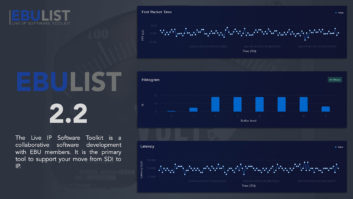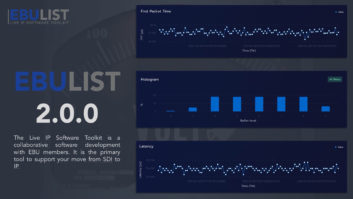
The EBU (10.F20) has put weighty support behind several key technologies, but its director of technology and innovation, Simon Fell, had no hesitation in citing the BBC R&D presentation of a next generation IP network studio as the most crucial at IBC.
“We believe very strongly that the future is based around finding an IP-based solution for network operations in studio environments. If we don’t have an affordable solution that’s going to help companies plan the next big infrastructure, then we’ll never get the 4K services developed, and even the 8K services beyond 4K,” he said.
“Our software development has increased this year and we want to be recognised for pushing the boundaries of what is possible.”
The EBU has to find solutions that build on the benefits of using common IP technology with enough capacity and built-in future capability. At IBC BBC R&D is showing multi-format live production in the IP domain it created during the Commonwealth Games in Glasgow, with much of the outcome, like DTT transmissions in T2, being HEVC enabled.
The EBU itself shot content at last month’s European Athletics Championships, and like the BBC, it recorded experimental high frame rate shots – plus some high dynamic range content. The problem has been finding custom-made displays to show the Zurich experimental content.
“We collaborated with IRT and NHK to get a prototype made with specific features,” said Fell. “We have also worked with four camera manufacturers, and we are representing the BBC at The Joint Network Media Taskforce.”







